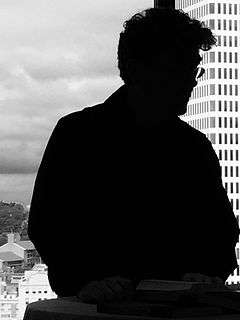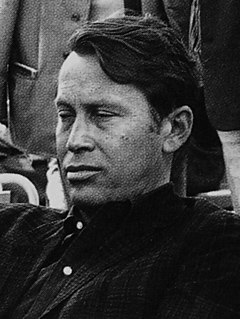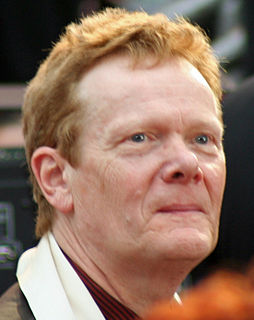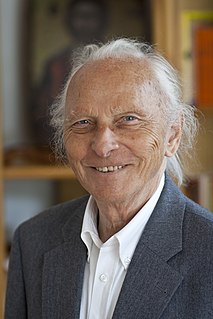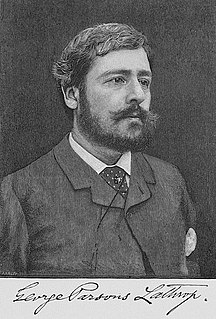A Quote by Michel de Montaigne
The most ordinary things, the most common and familiar, if we could see them in their true light, would turn out to be the grandest miracles.
Related Quotes
Ask anyone what that means, what it means to see a miracle, and they will say that it's something impossible, but they mean that a miracle is something formerly believed to be impossible that turns out not to be, not to be impossible, in other words, but possible after all. If this were really true, then miracles would be the most ordinary things in the world, the most uninspiring things in the world, and what can one expect from people who have never been anything but ordinary and uninspired.
Figure out the one solution - not three - that you want to see happen. There were quite a few things we could have gone after but we decided to focus on the commanders and that was a strategic decision because that, for us, would be the most vulnerable point and the most effective one that could immediately change.
His true Being comes to light and even penetrates his clothing. We should not limit ourselves to Jesus. We have to recognize ourselves, our own true form... Life would be so simple if we could always see what we are; if we could recognize what our neighbors are. If we could see the beams of light that pass through their clothing; if we could not only see their external form, but also experience their true being.
Sometimes you walk into things, that, if you were paying attention, vibrationally, you would know right from the beginning that it wasn't what you are wanting. In most cases, your initial knee-jerk response was a pretty good indicator of how it was going to turn out later. The things that give most of you the most grief are those things that initially you had a feeling response about, but then you talked yourself out of it for one reason or another.
Realism sets itself at work to consider characters and events which are apparently the most ordinary and uninteresting, in order to extract from these their full value and true meaning. It would apprehend in all particulars the connection between the familiar and the extraordinary, and the seen and unseen of human nature.
Storytelling awakens us to that which is real. Honest. . . . it transcends the individual. . . . Those things that are most personal are most general, and are, in turn, most trusted. Stories bind. . . . They are basic to who we are. A story composite personality which grows out of its community. It maintains a stability within that community, providing common knowledge as to how things are, how things should be -- knowledge based on experience. These stories become the conscience of the group. They belong to everyone.
According to "matter-ism," matter is all that exists. The only things that are real are physical things in motion governed by natural law. That story starts, "In the beginning were the particles," or, as one famous person put it, "The cosmos is all that is, or ever was, or ever will be." No God. No souls. No Heaven or Hell. No miracles. No transcendent morality. Just molecules in motion following the patterns of natural law. This is the story that most atheists, most "skeptics," most humanists, and most Marxists believe is true.
But the idols of the Market Place are the most troublesome of all: idols which have crept into the understanding through their alliances with words and names. For men believe that their reason governs words. But words turn and twist the understanding. This it is that has rendered philosophy and the sciences inactive. Words are mostly cut to the common fashion and draw the distinctions which are most obvious to the common understanding. Whenever an understanding of greater acuteness or more diligent observation would alter those lines to suit the true distinctions of nature, words complain.
I don't view myself as a particularly intelligent people, but I do have one ability that I've demonstrated over and over again, that's helped me see things that other people for whatever reason have not seen. That's that most people see what they expect to see, what they want to see, what conventional wisdom tells them to see. I guess it could be stated that most people only hear the music, not the lyrics of human events.

